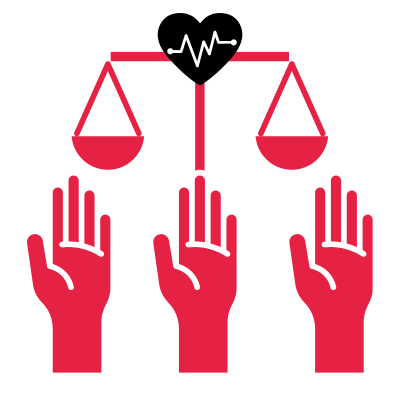The Storm Has Ended, But Is It Calm? Addressing DSP Resilience and Burnout After the COVID-19 Pandemic
Keywords:
burnout, equity, direct support professional, turnover, human services, intellectual and developmental disabilityAbstract
The COVID-19 pandemic has further taxed an already strained workforce within the healthcare sector. Now that the pandemic has subsided, consideration of front-line employees within healthcare and specific to the intellectual/developmental disabilities (IDD) population has faded into the background. Direct support professionals (DSP) providing crucial care in programs that serve our vulnerable population are facing post-pandemic challenges while others move forward. Front-line workers are experiencing burnout more than ever, which is indicated by the continued increase in turnover. State and federal funding does not allow for a living wage which results in barriers to obtaining reliable transportation, childcare when working, adequate and affordable medical care, and opportunities to participate in wellness (DSPs often work beyond a 40-hour week). Such barriers have been identified as obstacles towards the social determinants of health. DSPs are then presented with the workplace challenge of providing quality care and support to people with IDD. A combination of stressors within and outside the workplace ultimately leads to burnout which results in turnover.
In response to this we must explore alternatives to support DSPs within and outside of the workplace.
Downloads
Published
How to Cite
Issue
Section
Categories
License
Copyright (c) 2023 Theresa Wilson-Fall, Darren Garansi (Author)

This work is licensed under a Creative Commons Attribution-NonCommercial-NoDerivatives 4.0 International License.
The Social Innovations Journal permits the Creative Commons License:
CC Attribution-NonCommercial-NoDerivatives 4.0
Under the following terms:
-
Attribution — You must give appropriate credit, provide a link to the license, and indicate if changes were made. You may do so in any reasonable manner, but not in any way that suggests the licensor endorses you or your use.
-
NonCommercial — You may not use the material for commercial purposes.
-
NoDerivatives — If you remix, transform, or build upon the material, you may not distribute the modified material.
- No additional restrictions — You may not apply legal terms or technological measures that legally restrict others from doing anything the license permits.
Notices:
- You do not have to comply with the license for elements of the material in the public domain or where your use is permitted by an applicable exception or limitation.
- No warranties are given. The license may not give you all of the permissions necessary for your intended use. For example, other rights such as publicity, privacy, or moral rights may limit how you use the material
Copyright and Publishing Rights
For the licenses indicated above, authors retain the copyright and full publishing rights without restrictions.





